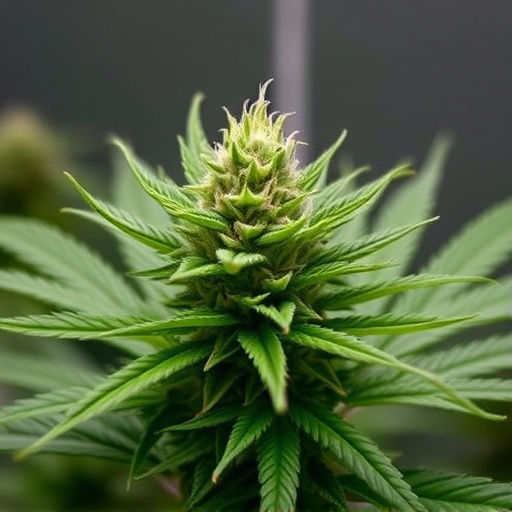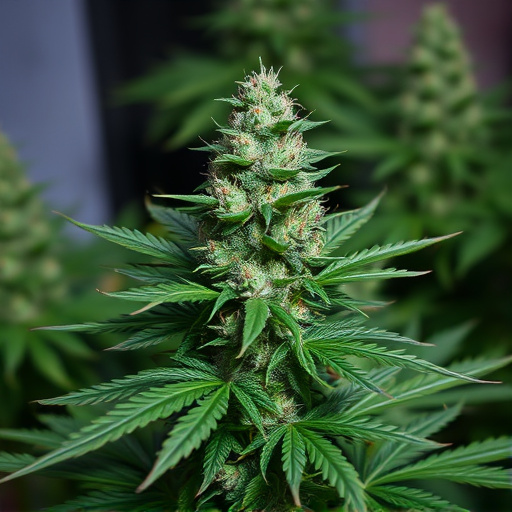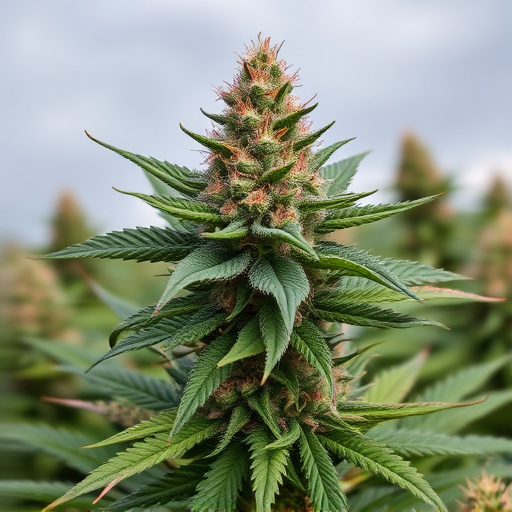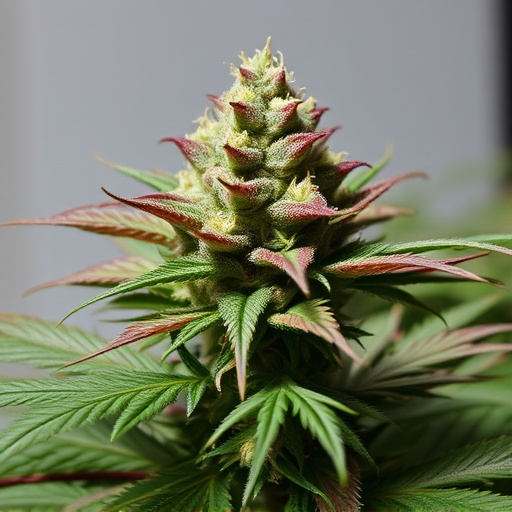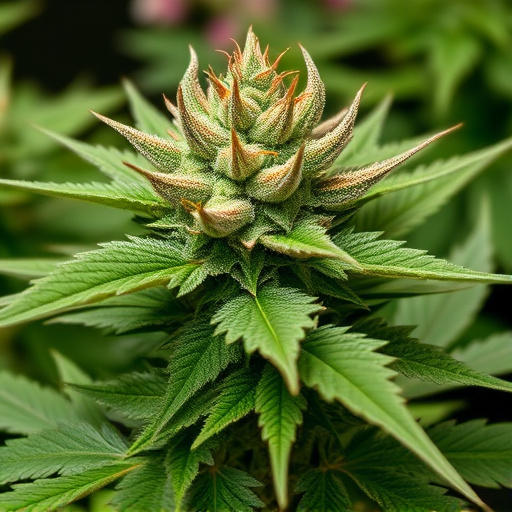While strong cannabis strains offer potent therapeutic benefits, they pose substantial health risks, including amplified psychological effects like anxiety and paranoia, especially in individuals with mental health conditions. Regular consumption may contribute to respiratory issues and cognitive impairment, particularly affecting young brains still in development. To mitigate these dangers, responsible consumption practices are crucial for users of strong cannabis strains, which carry significant social and legal ramifications in many regions due to high THC levels.
“Exploring the risks associated with strong cannabis strains, this article delves into the potential health hazards and psychological effects of potent marijuana use. As high-potency cannabis becomes increasingly accessible, understanding its impact on mental well-being and overall health is paramount. We’ll discuss specific risks, including cognitive impairments, anxiety, and paranoia, while navigating the legal and social considerations surrounding these strong strains. By examining these factors, users can make informed decisions regarding their consumption.”
- Potential Health Risks Associated with Strong Cannabis Strains
- Psychological Effects: The Impact on Mental Well-being
- Legal and Social Considerations for High-Potency Cannabis Use
Potential Health Risks Associated with Strong Cannabis Strains
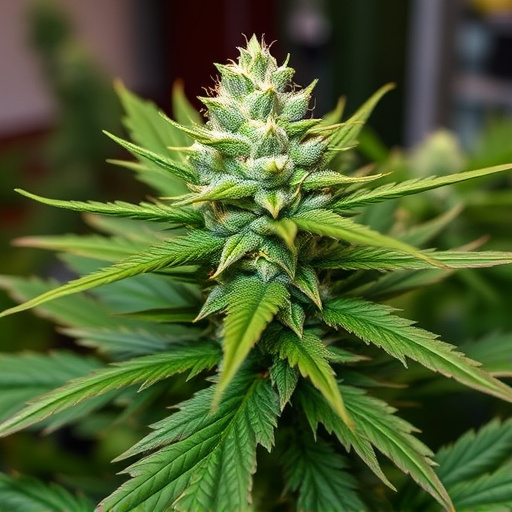
Strong cannabis strains, while offering enhanced potency and unique therapeutic benefits, also come with potential health risks. The higher concentrations of tetrahydrocannabinol (THC), the primary psychoactive compound in cannabis, can lead to more intense psychological effects, including heightened anxiety, paranoia, and hallucinations in some users. These experiences can be particularly distressing for individuals with pre-existing mental health conditions or a history of substance abuse.
Moreover, regular consumption of strong cannabis strains may contribute to respiratory issues due to the inhalation of potent cannabinoids and terpenes. The risk of cognitive impairment is another concern, as consistent exposure to high THC levels could potentially impact memory, attention, and decision-making abilities, especially in young people whose brains are still developing.
Psychological Effects: The Impact on Mental Well-being
Cannabis flower, particularly strong cannabis strains, can have significant psychological effects on users’ mental well-being. The impact can vary greatly depending on individual tolerance and predispositions, but it’s crucial to be aware of potential risks. High concentrations of tetrahydrocannabinol (THC), the primary psychoactive compound in cannabis, can induce feelings of anxiety, paranoia, and even psychosis in some individuals. These effects may be more pronounced when consuming potent strains that have been bred for high THC levels.
Regular use of strong cannabis strains could contribute to long-term mental health issues, especially in adolescents and young adults whose brains are still developing. Studies suggest a potential link between heavy cannabis use and an increased risk of schizophrenia, depression, and anxiety disorders. Additionally, the psychological effects can impact daily functioning, affecting memory, concentration, and decision-making abilities. It’s essential for users to be mindful of their consumption, especially when exploring strong cannabis strains, to mitigate these risks and prioritize mental well-being.
Legal and Social Considerations for High-Potency Cannabis Use
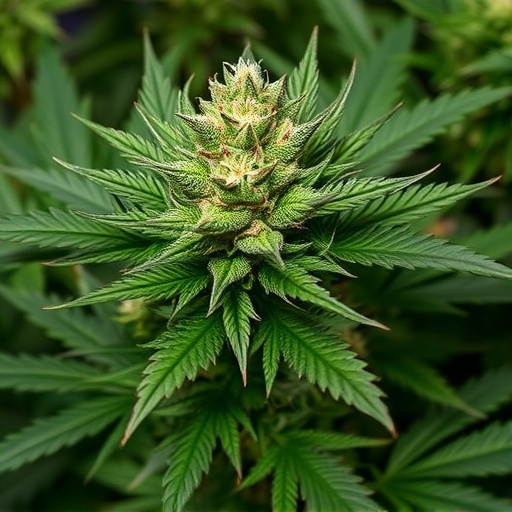
As the popularity of cannabis increases, so does the availability of high-potency strains. While these potent varieties offer enhanced effects for medical and recreational users, they also come with significant risks. One of the primary concerns is the potential for adverse social and legal consequences. Many regions have strict regulations regarding cannabis use, possession, and distribution, especially for strong cannabis strains. High concentrations of THC can lead to intense psychological effects, including anxiety, paranoia, and hallucinations, which may trigger underlying mental health issues or exacerbate existing conditions. This heightened risk necessitates a responsible approach to using potent cannabis strains, considering both personal well-being and legal repercussions.
The social implications cannot be overlooked. Using high-potency cannabis can impact an individual’s ability to function normally in daily life, affecting work performance, relationships, and overall social interactions. Moreover, the potential for dependency and the gateway effect remain areas of concern, especially among younger users. Navigating these risks requires education, awareness, and responsible consumption practices to ensure a safe and positive experience with strong cannabis strains.
While the potential therapeutic benefits of cannabis are well-documented, it’s crucial to be aware of the risks associated with strong cannabis strains. The higher concentrations of THC can lead to intensified psychological effects, potentially causing anxiety or paranoia in susceptible individuals. Moreover, long-term use may contribute to mental health issues and addiction. Legal and social considerations further complicate access and usage, emphasizing the need for responsible consumption and informed decision-making regarding high-potency cannabis products.

